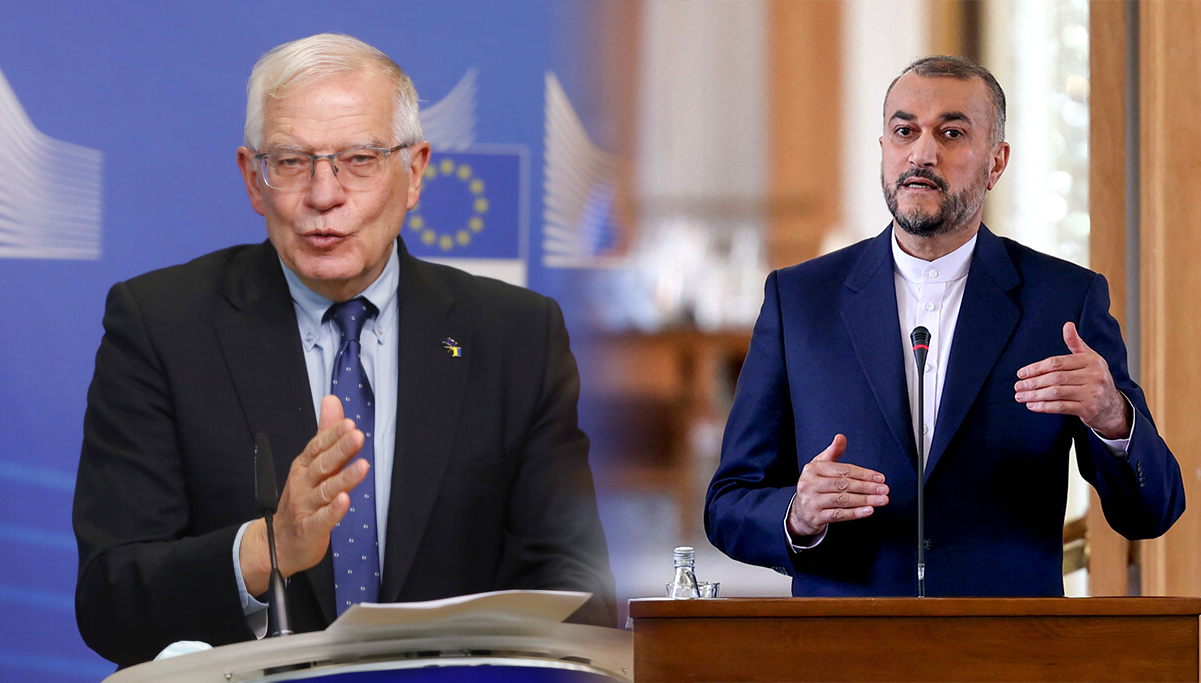Despite all the negative indications regarding the failure of negotiations between Iran and global powers regarding Iran’s nuclear program, the latter still refuses to declare negotiations a failure, and is seeking to drag them out as long as possible. This comes at a time when US political circles have begun to signal that they are convinced Iran is unable to come to a decision regarding the agreement, and that further negotiations will not help in reaching a compromise or concluding a deal.
The Iranian and American stances were clearly expressed in their respective responses to the proposal put forth by EU diplomat Josep Borrell, in an article published in the Financial Times on the 26th of July. He proposed lifting US sanctions in return for Iran abiding by the articles of the nuclear accord. Iran’s foreign minister Hossein Amir- Abdollahian, on July 29th, declared that Iran’s diplomats would continue negotiating to have the sanctions lifted, but that Iran wanted a strong, stable, and long-lasting agreement. On his part, the US State Department spokesperson, Ned Price, said that Iran had not shown political will during the past months to bypass the current impasse in the nuclear negotiations, signaling that the US administration is beginning to consider different scenarios regarding the future of negotiations.
Iran’s insistence on continuing negotiations, despite the lack of positive results, can be explained in light of the following motives:
Attempts to gain domestic support for the deal: It must be considered that the government of President Ebrahim Raisi is up till now unable to gain the necessary domestic support for the deal to be approved. There appears to be a trend gaining in momentum to scrap the agreement. Furthermore, the position of Iran’s Supreme Leader Ali Khamenei on the issue still appears ambiguous. The US has started to focus on that specific point, highlighting that the lack of progress on the issue is down to Tehran’s stance. As reported by US media outlet Axios, White House Middle East Affairs coordinator, Bret McGurk, said last July that the Iranians did not have the capability to reach a decision regarding the nuclear deal, and that they want the US to make more concessions to help persuade Khamenei. This suggests that the insistence of Raisi’s government on gaining more concessions from the US, including guarantees that the US will not withdraw from the deal and removing the IRGC from the terrorist list, is related to domestic considerations. The government is trying to bolster the agreement against domestic opposition which could derail it.
Getting past the US Congressional mid-term elections: Raisi’s government and its negotiating team may view the current hard line US position regarding negotiations is at least partially related to the upcoming mid-term elections. The Biden administration, in this view, is refusing to make compromises in an attempt to bolster the President’s popularity and to minimize the expected Democratic losses in these Congressional elections.
There are therefore some in Iran who feel it is necessary to continue negotiations until after the mid-term elections, when there may be less pressures on the Biden Administration, thereby allowing it to compromise and meet Iran halfway. This seems to be supported by statements of the Iranian Foreign Minister to the Italian magazine La República, July 13, suggesting postponing negotiations on contentious issues, while focusing on a deal that would safeguard the interests of Iranian corporations. This suggests Iran on its part is trying to help the Biden Administration overcome opposition to the deal among both Republicans and Democrats.
Leveraging the effects of the Ukrainian conflict: Iran is closely following the developments in Ukraine and perceives that its ramifications make reaching a deal with Iran even more important to the international community, putting more pressure on the latter to conclude it.
As winter draws in, the shortage of energy supplies to EU states and will become more acute, and they will do their utmost to expand their options of available sources, one of which would be Iran’s oil. This may motivate western states to be more flexible when it comes to Iran’s demands, especially regarding economic guarantees, and protecting Iranian companies from once again suffering losses as those that resulted from the US withdraw from the nuclear deal in 2018.
Avoiding the economic consequences of failure: Iran has suffered as a result of US imposed sanctions and perceives that it could not withstand the return of wider international sanctions should negotiations be announced a failure. This perception has been bolstered by what it perceives as detrimental effects of western sanctions imposed on Russia as the result of its invasion of Ukraine, despite Russia’s strong efforts to bypass them. The failure of negotiations could place Iran in a similar position, with Western countries moving to reimpose sanctions previously imposed by the UN Security Council, which were lifted through the passing of UNSC resolution 2231 in May 2015, due to the first nuclear deal coming into force.
Thus, it is to be expected that Iran will continue to exert pressure to continue negotiations, as it perceives that focusing on details could affect the situation on the ground, by placing more pressure on the West as it tries to deal with rising oil prices. This stance may explain the increased efforts by mediators, such as the Sultanate of Oman, which is trying to effect a prisoner exchange between the US and Iran, and Qatar, which is trying to host a new round of negotiations between the US and Iran.


